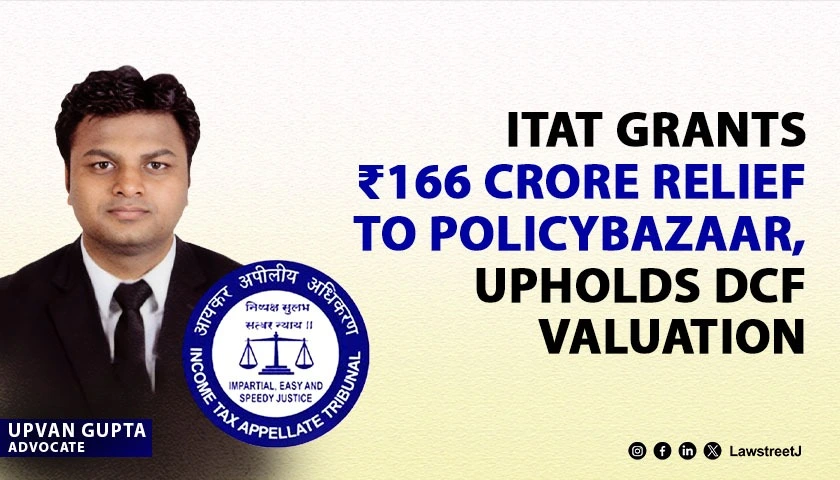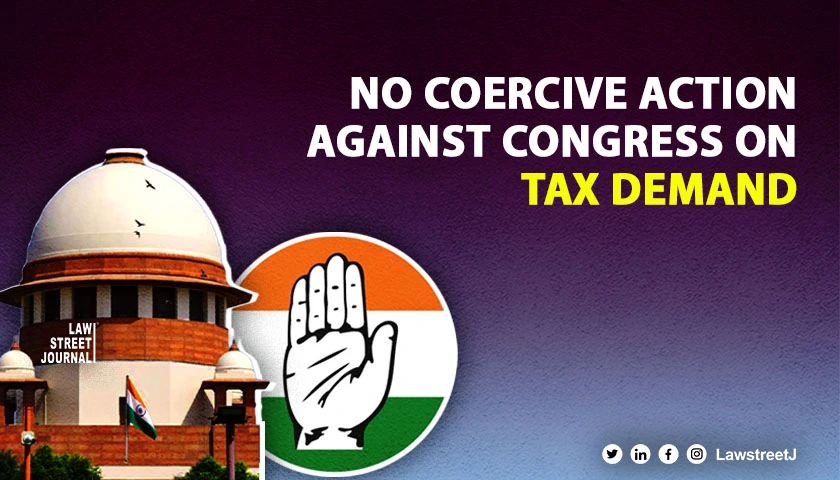New Delhi: The Delhi Bench of the Income Tax Appellate Tribunal (‘ITAT’), comprising of Shri S. Rifaur Rahman (Accountant Member) and Shri Anubhav Sharma (Judicial Member), has delivered a significant judgment granting relief of ₹166 crores to PB Fintech Limited (Policybazaar). The ruling pertains to the contentious issue of share premium valuation under Sections 68 and 56(2)(viib) of the Income Tax Act, 1961 (‘the Act’), with the Tribunal accepting the Discounted Cash Flow (‘DCF’) method as a valid approach for share valuation.
PB Fintech, a major player in the financial product comparison sector, had declared a total loss of ₹56.8 crores for the Assessment Year 2016-17. However, during scrutiny, the Assessing Officer (AO) raised questions over the share premium amounting to ₹166 crores and rejected the company’s DCF-based valuation report. Instead, the AO assessed the Fair Market Value (FMV) of the shares at face value (₹10 per share) and added ₹166 crores to the company’s income under Section 68/ 56(2)(viib) of the Act, applying a higher tax rate of 30% under Section 115BBE.
Additionally, the CIT(A) enhanced the addition under Section 56(2)(viib) of the Act directing AO to not consider assessee as ‘venture capital undertaking’ and accordingly deny benefit of exclusion from applicability of section 56(2)(viib) of the Act.
Advocate Upvan Gupta represented PB Fintech and strongly argued in favor of the DCF-based valuation. He emphasized that the valuation was prepared by an independent valuer in compliance with regulatory requirements and that variations in financial projections were a result of market dynamics and unforeseen changes. He further highlighted that the share premium’s genuineness and the creditworthiness of investors had been established beyond doubt.
Also Read: What Is The Vivad Se Vishwas Scheme Explains Advocate Upvan Gupta
The Counsel also argued that the assessee qualified to be a 'venture capital undertaking' in terms of the provisions of section 10(23FB), implying thereby that the provisions of section 56(2)(viib) of the Act were not applicable in the present matter qua receipt of share capital/ premium from SEBI registered Venture Capital funds, viz., PI Opportunities Fund I and PI Opportunities Fund II.
After hearing the arguments/ submissions, the ITAT noted that the DCF method, although reliant on assumptions, is an acceptable and standard valuation methodology, particularly for startups and companies with high growth potential. The tribunal criticized the AO’s rejection of the valuation as lacking a valid basis, especially since PB Fintech’s financial projections were made in good faith. Furthermore, the ITAT acknowledged the company’s efforts in demonstrating the identity, genuineness, and creditworthiness of its investors, with some resident investors independently supporting the company’s claims during the assessment.
The Tribunal ruled in favor of PB Fintech, rejecting the AO’s valuation and the resulting additions under Sections 68/ 56(2)(viib) of the Act. The Tribunal also deleted the enhancement proposed by CIT(A) under the provisions of section 56(2)(viib) of the Act, holding the assessee to be a 'venture capital undertaking'.
This decision is a landmark for startups and high-growth companies, reaffirming the validity of the DCF method in share valuation and underscoring the need for tax authorities to consider industry-specific challenges. It also highlights the critical role of thorough documentation and compliance in defending tax positions. By successfully challenging the AO’s stance, PB Fintech has not only secured substantial financial relief but also set a precedent for similar cases involving share premium disputes.








![TDS not to be deducted by Tele cos for selling discounted pre-paid SIM cards to distributors: SC [Read Judgment]](/secure/uploads/2024/02/lj_5756_e3a03d41-92f8-4529-8c9c-df21f516bf5d.webp)

![Benefit enjoyed by bank staff in form of interest free loans taxable as perquisites: SC [Read Judgment]](/secure/uploads/2024/05/lj_1555_4fe2c0bd-76e8-44dd-b622-56c366991e0a.webp)




